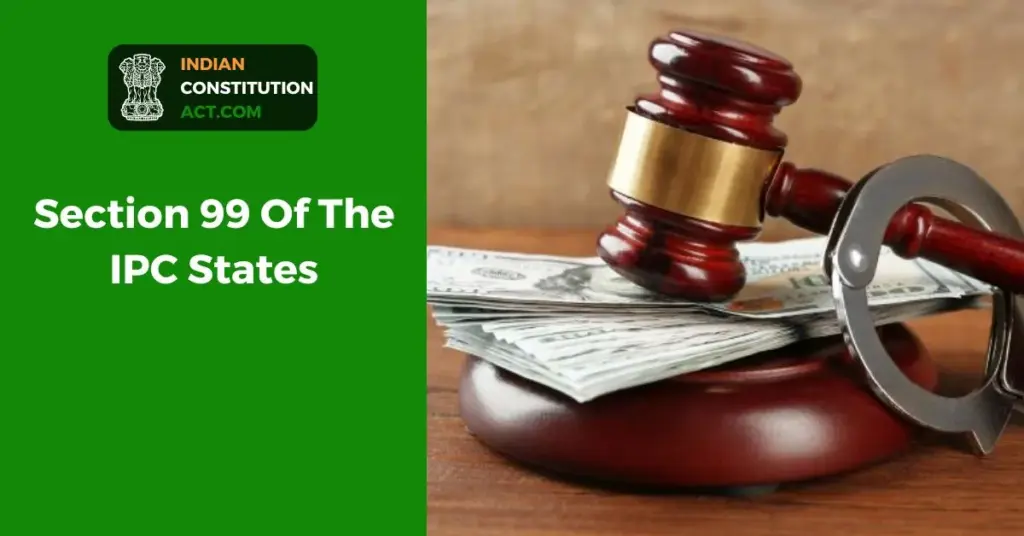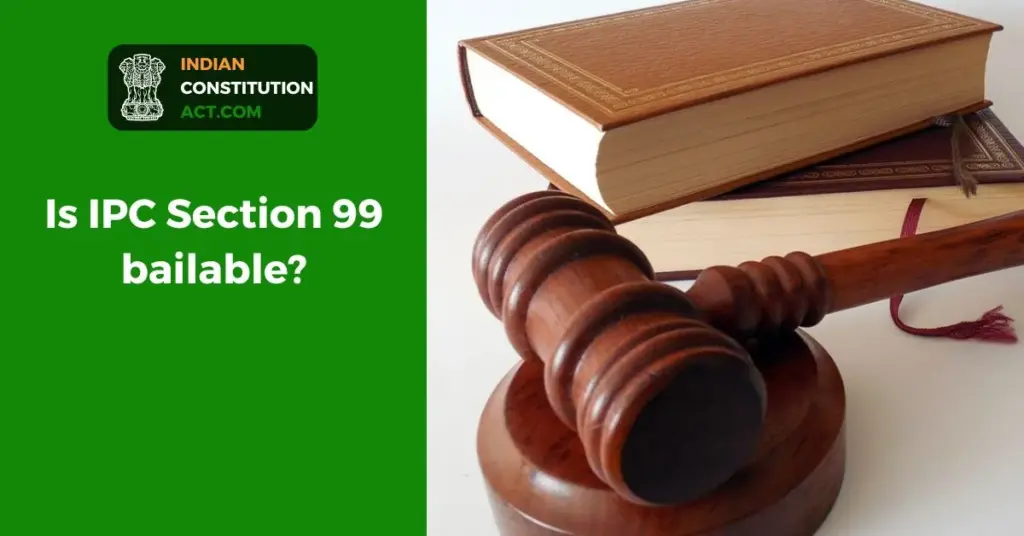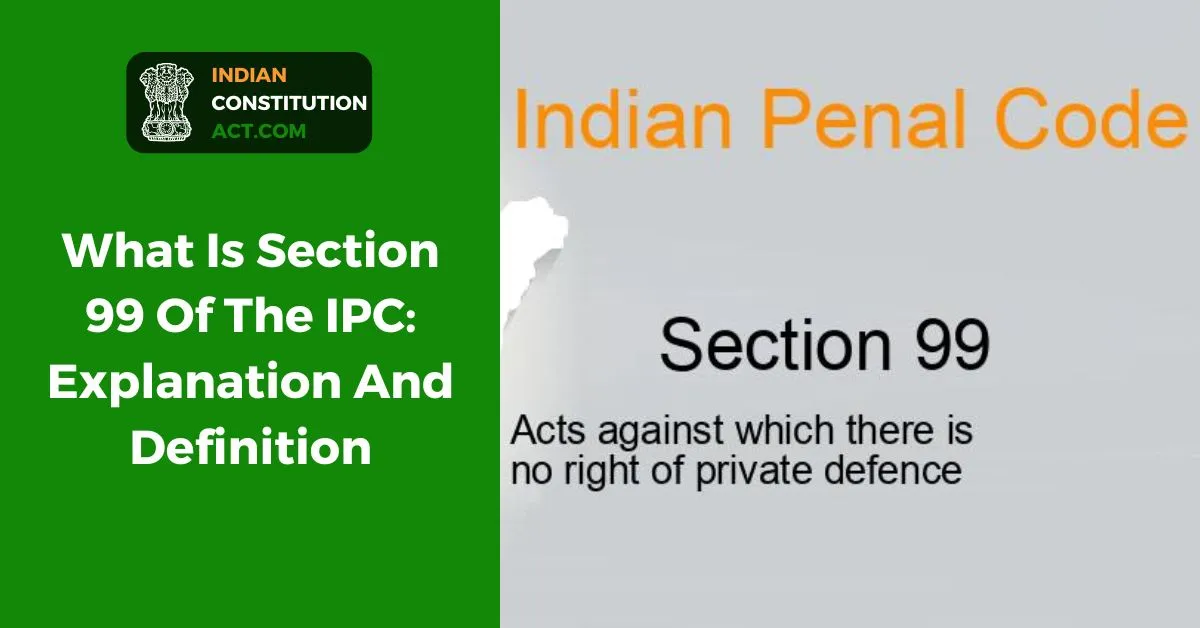Articles 96 to 106 of the Constitution of India are all meant to protect the right of self-defense of a common man. Similarly, Section 99 of the IPC tells about those acts against which there is no right of private defense. Let us know what provision has been made in Section 99 of IPC regarding this.
Table of Contents
Definition Of Section 99 Of The IPC
IPC Section 99 states such particular activity through which no one was badly harmed or you can say caused death. But the act performed in the right intention by the public officers only comes under this section. Yes, the accused should be a public servant only then this section will be valid.
Acts Done Under The Direction Of A Public Servant (Clause 2)
In this case, if a public servant gives his right to any person to perform a particular task in good faith then you can not exercise the private defense against that person.
Recourse To The Protection Of The Public Authorities (Clause 3)
If you had a full opportunity to ask for help from an official public servant and still decided to defend yourself instead of asking for help, then you can not use the right of private defense.
Also read: What Is Section 3 Of The IPC: Punishments & Key Points
Excess Harm Not Justified (Clause 4)
Clause 4 states that even if you are forced to resort to self-defense, you must keep in mind that you cannot seriously injure the person in defense. Offense in return will be considered if you seriously injure the officer in self-defense. And if you have caused even a little harm then it should be justifiable.
Section 99 Of The IPC States

Section 99 of the IPC is one of the very important sections in terms of the right of private defense context. This section tells us when we cannot use this right. Because sometimes many circumstances arise in such a way that you cannot use your right of private defense.
In Section 99 of the IPC, there are 4 most important reasons why you cannot use your private defense right.
- If this act has been done by any public servant. Just like if a public servant is taking action against you because of his duty while on duty, then you cannot access your right to private defense. This section will be applicable only if the public servant is doing that work with good intentions.
- If any act is supervised by the public servant.
- You still cannot exercise your self-defense right when you have taken the law into your own hands, but instead of doing so, you should have taken help from a public servant.
- If you have taken any action in your self-defense then you should be able to justify it.
Also read: What Is Section 107 Of The Indian Penal Code
Is IPC Section 99 bailable?

No, it has no availability status. Because as we have discussed earlier section 99 of the IPC does not state the punishment for the action but takes care of the limitation of the right of private defense.
When private defence can be exercised?
If any action of a public servant does not seem legal to you, then you might exercise the right of private defense against him. In simple words, if any action of a public servant is against the law, the officer is trying to do something beyond the prescribed limit, is not doing so with proper intention, is against the authority of his office, or intends to kill you or seriously injure you, then you have the right of private defense.
IPC Section 99 Punishment
As we learned in today’s blog, Section 99 of the IPC does not represent any offense, rather this IPC makes Indian citizens aware of when they are capable of private defense and when they are not.
